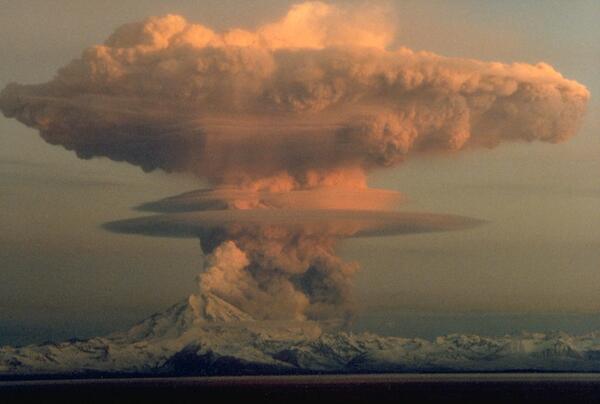Do volcanoes affect weather?
Yes, volcanoes can affect weather and the Earth's climate. Following the 1991 eruption of Mount Pinatubo in the Philippines, cooler than normal temperatures were recorded worldwide and brilliant sunsets and sunrises were attributed to this eruption that sent fine ash and gases high into the stratosphere, forming a large volcanic cloud that drifted around the world. The sulfur dioxide (SO2) in this cloud -- about 22 million tons -- combined with water to form droplets of sulfuric acid, blocking some of the sunlight from reaching the Earth and thereby cooling temperatures in some regions by as much as 0.5 degrees Celsius. An eruption the size of Mount Pinatubo could affect the weather for several years.
A similar phenomenon occurred in 1815 with the cataclysmic eruption of Tambora Volcano in Indonesia, the most powerful eruption in recorded history. Tambora's volcanic cloud lowered global temperatures by as much as 3 degrees Celsius. Even a year after the eruption, most of the northern hemisphere experienced sharply cooler temperatures during the summer months. In parts of Europe and in North America, 1816 was known as "the year without a summer."
Learn more: Volcanoes Can Affect Climate
Updated Date: November 4, 2024



















